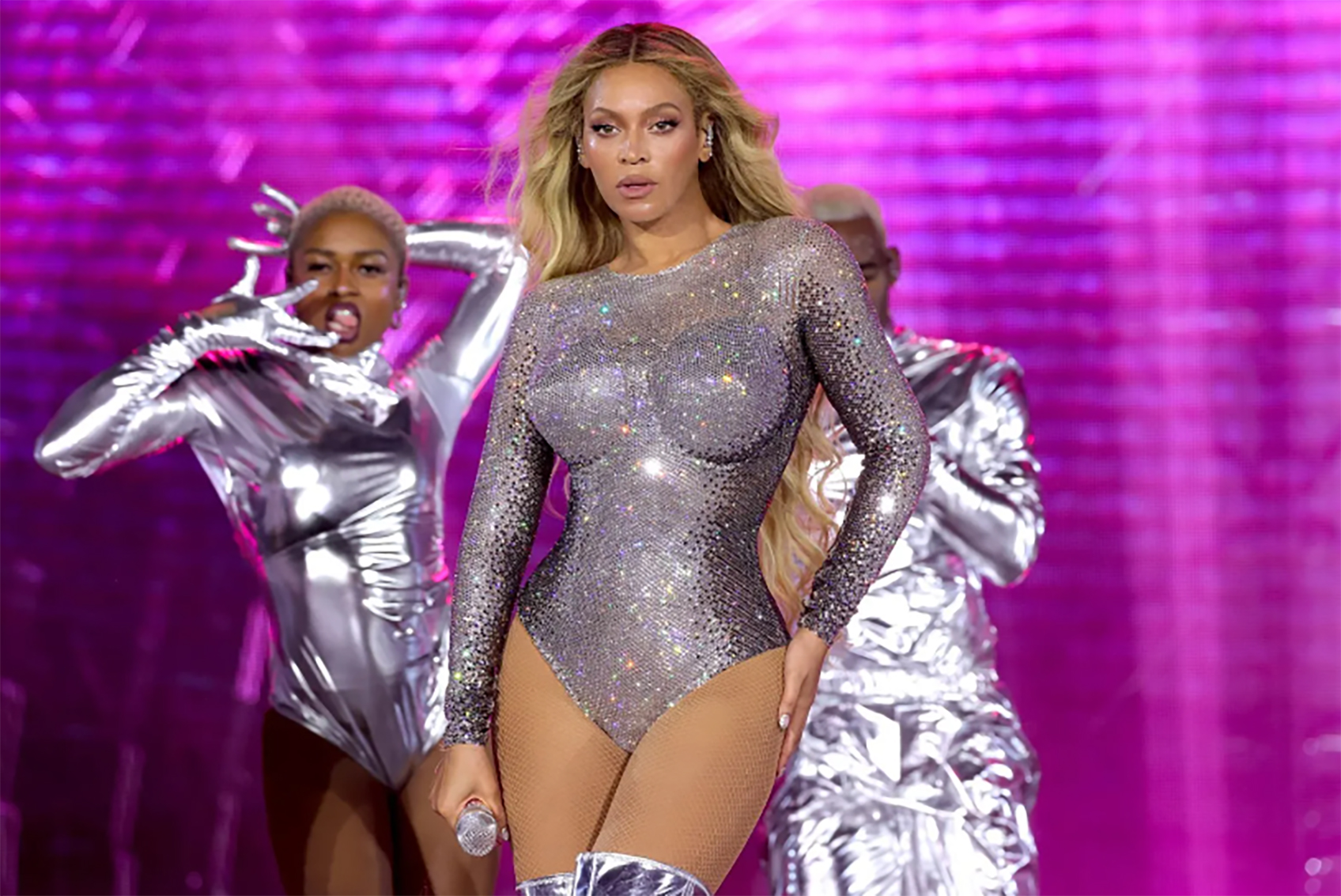BREAKINGNEWS: Tʜᴇ Gʀᴀɴᴅ Oʟᴇ Oᴘʀʏ BANS Bᴇʏᴏɴᴄᴇ́ ꜰᴏʀ ʟɪꜰᴇ?

In a surprising and polarizing move, the Grand Ole Opry has announced that global music icon Beyoncé has been banned for life from performing at the iconic venue. The decision comes amidst a wave of criticism and debate over the boundaries of country music and the representation of diverse musical styles within the genre. Let’s delve into the details of this controversial ban and the broader implications it raises for the country music industry.
The Grand Ole Opry, located in Nashville, Tennessee, has long been considered a bastion of traditional country music, showcasing legendary performers and upholding the genre’s rich heritage. Established in 1925, the Opry has served as a platform for country music’s biggest stars, from Johnny Cash to Dolly Parton.

However, the decision to ban Beyoncé, one of the most successful and influential artists of our time, has ignited a firestorm of debate within the music community. The controversy stems from remarks reportedly made by Opry officials, citing Beyoncé’s musical style and image as incompatible with the Opry’s definition of country music.
According to sources close to the situation, the ban was prompted by Beyoncé’s recent foray into country music with her song “Daddy Lessons,” featured on her critically acclaimed album “Lemonade.” The track, which incorporates elements of country, blues, and hip-hop, received praise for its genre-bending approach but also drew criticism from traditionalists within the country music scene.
The decision to ban Beyoncé has been met with mixed reactions from fans, artists, and industry insiders alike. Supporters of the ban argue that the Grand Ole Opry has a responsibility to uphold the integrity of country music and preserve its authenticity. They contend that Beyoncé’s crossover into the genre represents a dilution of its traditional roots.
Conversely, critics view the ban as a regressive and exclusionary move that perpetuates narrow definitions of what constitutes country music. They argue that music genres are fluid and should evolve with changing times and cultural influences. Beyoncé’s exploration of country music, they argue, reflects the genre’s ability to transcend boundaries and reach diverse audiences.
The controversy also raises broader questions about diversity and representation within the country music industry. Historically, country music has been criticized for its lack of inclusivity and underrepresentation of artists of color. Beyoncé’s ban from the Grand Ole Opry highlights these ongoing disparities and challenges facing minority artists in the genre.
In response to the ban, Beyoncé’s representatives have issued a statement expressing disappointment and highlighting the importance of embracing diversity in music. They argue that Beyoncé’s contributions to country music are a celebration of its rich heritage and a testament to its universal appeal.
The Grand Ole Opry’s decision to ban Beyoncé underscores the tension between tradition and innovation in the music industry. As genres continue to evolve and artists push creative boundaries, institutions like the Opry face the challenge of balancing historical legacy with contemporary sensibilities.
Critics of the ban point to the evolving landscape of country music, which has seen a resurgence of diverse voices and styles in recent years. Artists like Lil Nas X, Mickey Guyton, and Kane Brown have challenged stereotypes and expanded the genre’s reach, paving the way for greater inclusivity and artistic experimentation.

The controversy surrounding Beyoncé’s ban also reflects broader cultural debates around identity and representation. In an era marked by heightened awareness of social justice issues, the music industry is under increasing scrutiny to address systemic inequities and foster greater diversity.
As discussions around Beyoncé’s ban continue to unfold, many are calling for a reevaluation of how country music defines itself and welcomes new voices. The Grand Ole Opry’s decision has sparked conversations about the need for inclusivity and openness within the genre, encouraging a more expansive view of what country music can be.
In conclusion, the Grand Ole Opry’s lifetime ban on Beyoncé has ignited a passionate debate about the nature of country music and the evolving landscape of the music industry. The controversy underscores the challenges of balancing tradition with innovation and highlights the ongoing need for greater diversity and representation within country music. As artists continue to push boundaries and challenge conventions, the future of the genre remains as dynamic and diverse as the artists who define it.
News
EMMERDALE Fans ‘CRACK THE CASE’ of Anthony’s Hand Injury as Connection to APRIL’S DISAPPEARANCE Is Uncovered
Emmerdale viewers think they know how Anthony Fox got his mystery hand injury after it was shown bandaged up, amid…
“EMMERDALE FANS Predict Joe Tate’s Next Victim as Second SH0CKING DE@TH Is ‘Sealed’”
Emmerdale fans are convinced Joe Tate is responsible for the shock d3ath of Kim Tate’s husband Will Taylor, and are…
EastEnders Hints at the Panesars’ Fate Amid Nish’s Revenge Fallout – But Three Are ‘NOWHERE TO BE FOUND’
EastEnders spoilers for January and the aftermath of the New Year episodes hint at one family struggling after ‘dramatic’ events,…
EastEnders STAR CHARLIE BROOKS Debuts New Boyfriend Six Years After Heartbreaking Split
Soap legend Charlie Brooks has proudly shown off her new boyfriend – sharing a loved up selfie on her main…
EastEnders: GRANT MITCHELL’S ‘EXPLOSIVE’ Return as ROSS KEMP Reprises His Iconic BBC Soap Role
EastEnders has finally confirmed Grant Mitchell will be returning to the BBC soap for the 40th anniversary build-up, with actor…
SOAP SHOCK: Carla Connor Drops a New Year Bombshell in a Shocking Confession to Lisa Swain on Coronation Street
CARLA Connor has made a bombshell New Years confession to girlfriend Lisa Swain in today’s Coronation Street. The Underworld boss…
End of content
No more pages to load













Leave a Reply